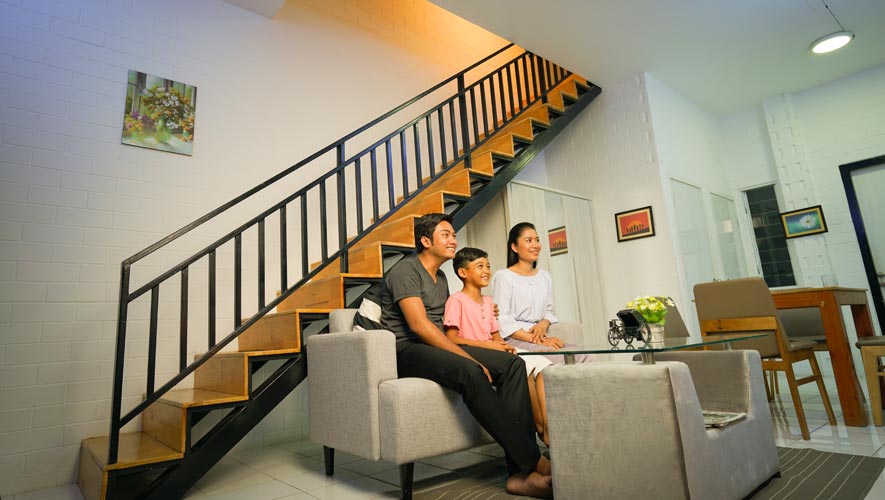The growth of a middle income population means there is a need for affordable housing but industry players grapple over its definition as the housing policy remains in the back burner
For the latest Cambodian Business news, visit Khmer Times Business
Affordable housing is posing a challenge in the Kingdom as the sector struggles to entice a wider pool of developers to embark on affordable housing projects in the country, probably due to lower profit margin amid high land prices.
But a closer look into the sector reveals that a handful of developers have started building condominiums for the middle class segment where units are priced between $30,000 and $50,000.
While these projects are thought to fall under the affordable housing category, industry players have yet to ascertain what price range actually denotes this segment.
An affordable price for an affordable home
Property developer Takashi Eguchi, president of Creed Group Asia (Cambodia) Co Ltd, says that the government is looking at a range under $30,000 when it concerns affordable housing projects.
To date, the definition of affordable housing remains a blur among developers as there are different prices for different projects, some exceeding $30,000.
“We feel houses under $30,000 can be introduced as affordable housing in Cambodia as the government’s incentive scheme for affordable housing might be applicable,” he says.
He adds that if the price of the volume zone is below $30,000, it might be considered affordable whether it is a landed or strata property.
“The policy announced by the government allows both landed properties and condominiums to fall under the affordable categories,” he says via email with Capital Cambodia.
Eguchi says if the government can provide tax incentives, prioritised infrastructure and supporting finance for buyers, it would be advantageous for builders working on affordable housing projects.
Challenges present for
affordable housing
WorldBridge Homes Co Ltd general manager Sothirith Yuk says despite the fact that Phnom Penh has witnessed fast urban development in the last five years, the affordable housing market has yet to be developed. This would have improved the quality of life of low and middle income families, had there been a strong movement for it.
“Developing affordable housing requires partnerships among key stakeholders particularly government support. The private sector alone should not be left to undertake all the responsibilities,” he adds.
However, with increasing land prices in Phnom Penh and the trend of building condos on the rise, can the city be home to the concept of affordable housing?
Eguchi says there are not many affordable housing projects in the city mainly due to unsuitable land prices. But, he adds, one might see projects of such connotation in the outskirts of Phnom Penh.
“Definitely, but there are very few rooms to supply affordable housing, especially landed, in Phnom Penh,” Eguchi says.
Yuk opines that land prices have an impact on the planning and development of affordable housing project.
This causes landed properties to become a less likely option for affordable housing projects in future.
Projects and type of buyers
In spite the government’s encouragement, there is only a handful of affordable housing projects in the city centre.
Worldbridge Homes, for example, is developing its first affordable housing project called Serey Mongkul Satellite City which is located in Krong Takhmao. The price starts from $25,000 per unit.
Two other projects include a project by Bunches Group Co Ltd with an investment value of $88 million. It is located in Ponhea Leu district, Kandal province.
Another project is by Japanese real estate company, Arakawa, worth $70 million and is located in Sen Sok district’s Teuk Thla commune in the capital.
The outskirts of Phnom Penh seem to be a favourable location for developers to build affordable houses due to lower land prices.
In terms of buyers, Eguchi says that it depends on the type of projects. If the project is located further from the city centre and consists of landed units, buyers are often made up of factory workers and office workers.
However, if the location is near the city centre and the units are apartment-styled, it is the younger generation who are interested in them.
Yuk says affordable unit buyers usually comprise civil servants, and low to medium income families who earn around $500 per month.
Rising need for national policies
Yuk says the government has developed good housing policies that are supposed to provide regulation facilitation, infrastructure connection and tax exemption to promote affordable housing project development.
“The key is to decide and act fast on implementation. So far, the government has moved too cautiously,” he adds.
According to Dr Jayant Menon, lead economist of the Asian Development Bank, affordable housing in Cambodia is probably only viable with some form of subsidy to serve this social objective.
Given Cambodia’s level of development, this type of support will likely have to involve assistance from bilateral or multilateral donors.
“But Cambodia must prioritise the social housing objective before donors are willing to assist. This needs to happen in conjunction with efforts that address property rights and land titling issues,” Jayant says.
Looking ahead, a good model for public housing is that of Singapore’s, he notes.
Although there are obvious differences that relate to its city state status that need to be taken into account, there are lessons to be gleaned on how to organise, price and finance public housing in an affordable and sustainable way.
Policies on affordable housing are currently underway in Cambodia. The new policy is said to include incentives for developers of affordable housing projects, which will cover tax breaks and the facilitation of bureaucratic procedures, such as the process of obtaining construction permits, business licenses and other necessary documents.
he housing policy remains in the back burner




